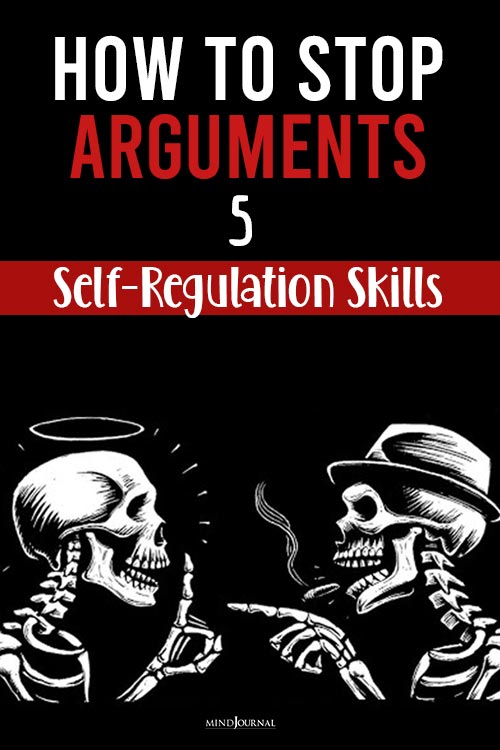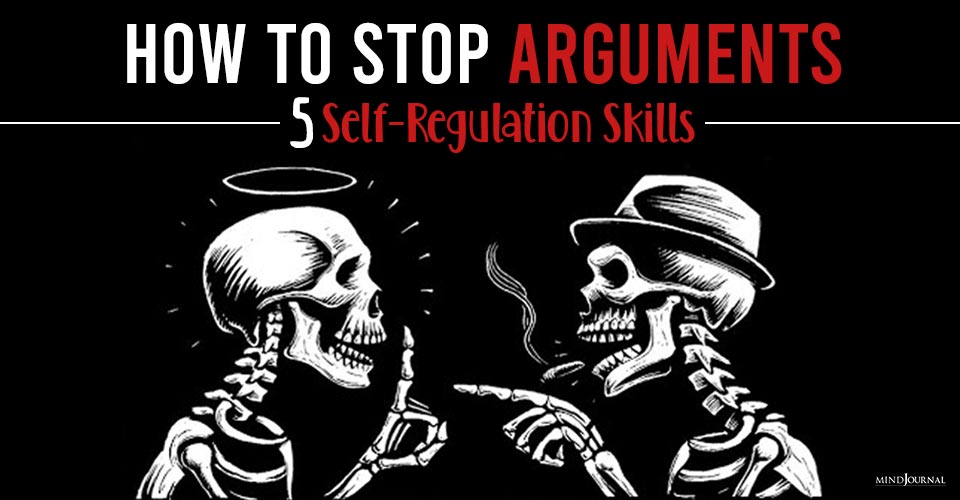Arguments are a part and parcel of every relationship and it is okay to argue with your partner once in a while, but what is not okay is letting your anger get the best of you every time there’s a disagreement. So, how to stop arguments, you ask? Well, this is where emotional self-regulation comes into play.
Key Points –
- Emotional self regulation refers to the ability to self-calm when irritation, annoyance, or anger first emerge.
- When people get angry, they insist on their needs and stop hearing other viewpoints. Speaking harshly can harm relationships.
- Emotional self regulation techniques include using pauses when anger first appears and remembering that both people have valid concerns.
Emotional self regulation refers to the ability to self-calm when irritation, annoyance, or anger first emerge. With emotional self regulation, potential arguments turn into calmly constructive discussions.
Related: 6 Practical Tips For Defusing Arguments With Your Partner
Compare these two scenarios:
- Option 1: Joe hadn’t washed the dishes as he had said he would. When Mary came home after late hours at work, as she entered through the kitchen door she saw that the kitchen was a mess. She exploded. “You never do your part in this family! What’s wrong with you?!”
- Option 2: When Mary came home late from work and saw that Joe hadn’t washed the dishes, she felt furious. She then immediately calmed herself down by hugging their children and asking Joe how his day had been. Joe responded that all day he had been feeling sick. Since dinnertime, he had been resting but was feeling only more nauseous. Hearing this, Mary’s anger evaporated altogether. She quickly looked for a thermometer to check if Joe had a fever.
Kids get angry with great frequency. Mature adults, by contrast, utilize emotional self regulation. They rarely, if ever, speak in an irritated voice or erupt in anger explosions. Instead, they respond to troubling situations with calm information-gathering and problem-solving.
Aren’t anger and arguing normal in relationships?
Yes and no. Feelings of anger are normal and even helpful as they alert people to problems. Speaking and acting angrily, by contrast, need to become out-of-bounds. That’s where emotional self regulation comes in.

What is the purpose of anger?
Angry voices and arguing aim to force others to replace what they are doing with what you want them to do—to get what you want by overpowering others.
As anger rises, frontal lobes go off-duty. The brain’s frontal lobes—located under your forehead—are where you think: where you uptake new information, process information, and create solutions to problems. When anger turns off your frontal lobes, thinking halts. You then just insist on your own viewpoint without hearing others’.
Anger is toxic.
A calm and friendly tone enhances affection. Anger, by contrast, poisons relationships. No one likes someone who speaks harshly to them.
Anger is a contagious toxin. When one person speaks angrily, the other becomes at risk for responding with either anger or defensiveness, i.e., arguing.
Anger also is like fire. A small match can easily ignite an eventual major blaze. As voices get louder, faster, and more insistent, they become increasingly destructive.
Even low-intensity anger like annoyance, irritation, or frustration conveys a “You are not OK” message—a message that surely taints the receiver’s affection and goodwill.
Related: 3 Questions To Ask Yourself If You and Your Partner Fight Constantly
What emotional regulation techniques are especially helpful? In what ways?
Emotional self regulation habits keep relationships strong and loving. They prevent anger from toxifying relationships. They also prevent arguments.
Here are five essential techniques, all of them worth implementing immediately:
1. Make a decision.
Decide that you are finished with arguing. Let talking and acting in anger become like eating dirt, that is, something you just do not do. Decide that problems are for quiet problem-solving, not for criticizing, scolding, or blaming.
2. Perfect your pauses and exits.
At the very first sign of irritation or frustration, take a break by changing the topic. If anger is already rising in intensity, exit for a few minutes into a different room. Remove the over-heating pot from the hot stove. (My book The Power of Two offers detailed help with designing and implementing pause and exit routines.)
3. Learn strategies for quick self-calming.
Old-fashioned techniques of taking deep breaths or counting to 10 can be remarkably helpful. Distraction by briefly reading a magazine, talking with others, watering your plants, or doing any activity you enjoy also can bring a return of emotional calm.
Temporal tapping, which I described in an earlier post, offers an additional quick and easy technique to add to your repertoire.
To use self-calming techniques most effectively:
- Initiate a pause/exit early on, when the anger is barely evident.
- Initiate pauses whether you are the person becoming angry, or the potential receiver.
- During the pause, allow yourself to do zero thinking about what the other person did that provoked your anger. Focus instead on something—anything—else.
Related: 10 Tips For Constructive Arguments With Your Loved One
4. Remember that there are two of you, each with valid concerns.
Anger invites narcissism, that is, hyper-awareness of what you want to the exclusion of listening to the concerns of the person you are angry at. As a friend of mine once said, “When I am angry, what I want becomes holy. What the other person wants becomes irrelevant.”
Dismissing the other person’s point of view becomes all the more likely if you succumb to the belief “I’m right, You’re wrong.” That belief escalates anger and exacerbates the inability to listen.
Once you feel calmer, remind yourself that “There are two of us here.” Then ask yourself:
- What do I want? What will be a better way than using anger to get what I want?
- What does the other person want? What are his or her concerns? How can I help them as well?

5. Learn the “win-win waltz.”
In win-win problem-solving, the eventual plan of action is responsive to both people’s concerns.
The payoffs for ceasing to argue or even to speak a sentence or two in an irritated voice?
The result can be a home in which all family members feel safe. In a fight-free home, there’s no arguing, no angry interchanges, no hurtful voices. If you use these techniques with everyone, especially with family members and including children, you will be likely to receive fewer annoyed or angry voices directed to you as well.
Dealing with difficult situations only from a calm emotional state can be life-changing. Life becomes less stressful. You will become more effective at getting what you want—and more able to enjoy your one-and-only life. Sound appealing?
Written By Susan Heitler Originally Appeared On Psychology Today









Leave a Reply
You must be logged in to post a comment.